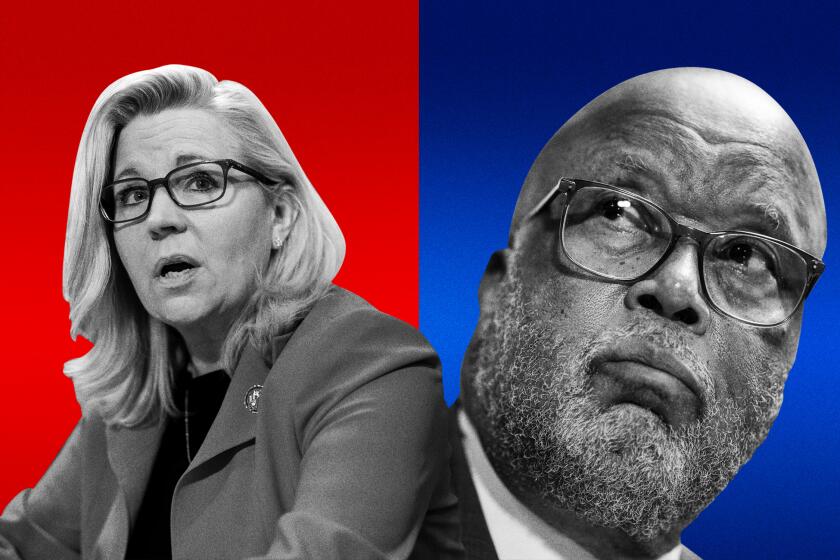Who’s who: Key figures in the Jan. 6 hearings on the Capitol insurrection
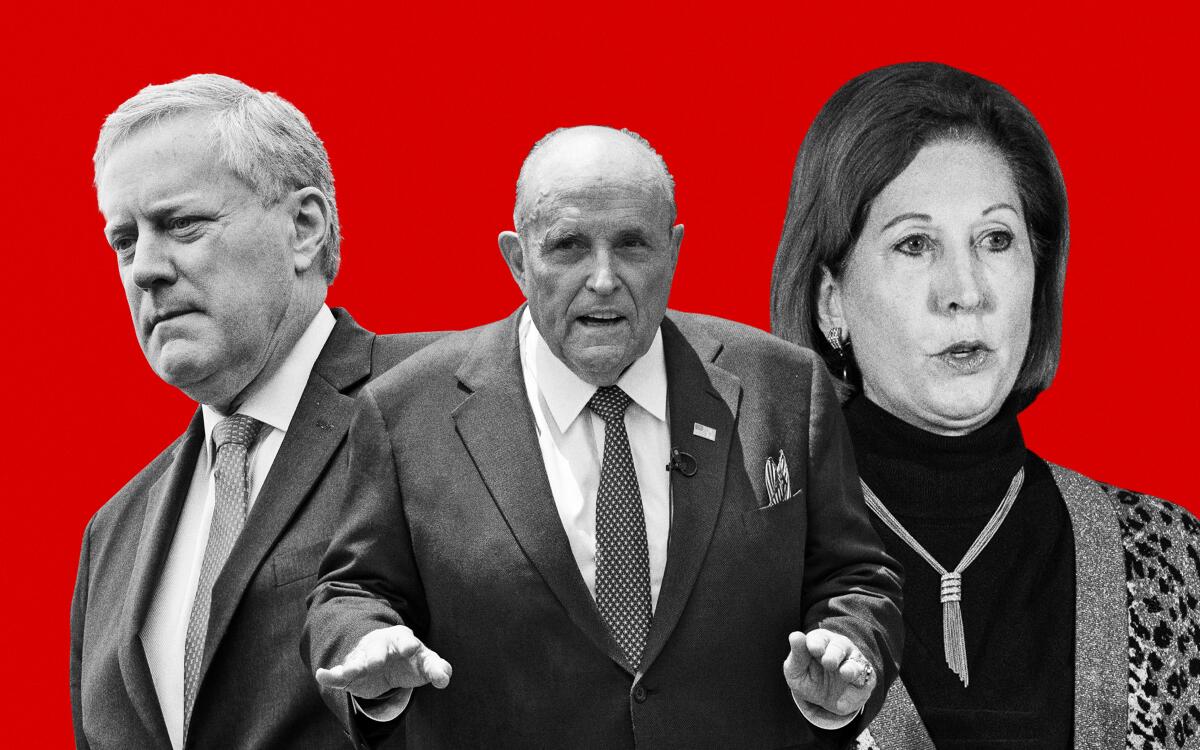
- Share via
WASHINGTON — The House Select Committee will pull from more than 1,000 depositions and thousands of documents as it lays out the results of its investigation for the American people in at least six public hearings in the next few weeks. Hearings begin Thursday.
Nearly all of the committee’s work has happened behind closed doors, but enough information has emerged from court filings, public statements and leaks to media outlets to help piece together who the major players may be.
Here’s a breakdown of who’s who and how they figure into the hearings.
Trump’s inner circle
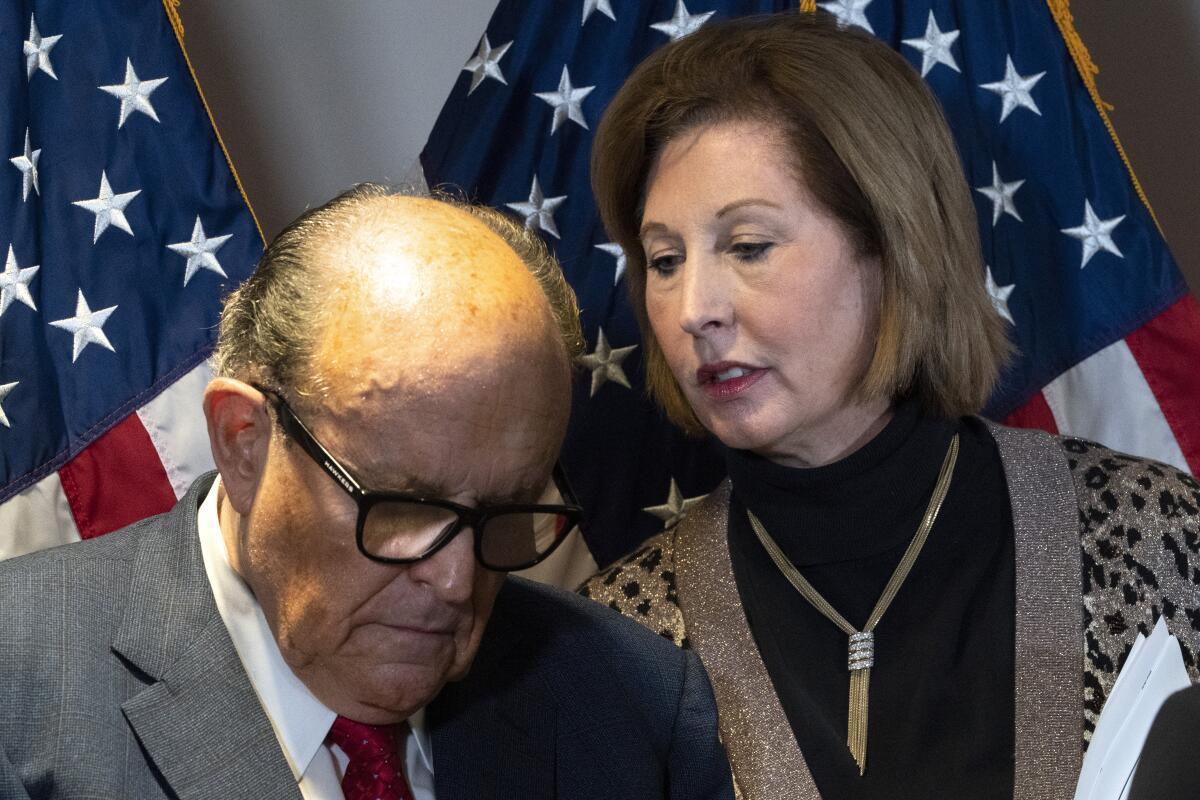
Then-President Trump’s personal lawyer Rudolph W. Giuliani and several members of his legal team pursued conspiracy-filled lawsuits that claimed voter fraud changed the outcome of the 2020 election. At the same time, they played central roles in the effort to persuade state legislatures and Congress in public and private meetings to overturn the results.
Also likely to be mentioned are Bernie Kerik, a former New York City police commissioner who worked with Giuliani after the election to gather evidence of fraud and gave the committee a lengthy deposition, and former Army Col. Phil Waldron, who was Giuliani’s key witness detailing how the alleged election fraud may have occurred as Giuliani tried to persuade state lawmakers and congressional Republicans to dispute their states’ certified election results.
Trump’s former national security advisor, Michael Flynn, his former attorney Sidney Powell and former Overstock.com CEO Patrick Byrne, who helped bankroll an effort to gather evidence of election fraud, were involved in weeks-long attempts to gain access to electronic voting data in an effort to prove their theory that fraud changed the results of the presidential election. The trio met with Trump in the Oval Office on Dec. 18, 2020, to propose an executive order that would have allowed the federal government to seize voting machines and election data in certain counties to audit the results and invoke national security emergency powers to investigate claims of foreign interference in the election. White House lawyers and Giuliani persuaded Trump to reject the idea.
John C. Eastman, a conservative attorney and former law professor, wrote memos that laid out how Trump could stay in power if Vice President Mike Pence rejected state electors on Jan. 6, or delayed certifying the vote to give state legislatures time to review fraud allegations and potentially send back electors for Trump rather than Biden. A federal judge in a case deciding whether Eastman must turn over documents to the committee determined that Eastman and Trump most likely committed felony obstruction.
The House committee begins holding hearings June 9 about the 2021 attack on the Capitol. Here is who serves on the committee.
Former executive branch officials
Trump’s Chief of Staff Mark Meadows, who initially provided the Jan. 6 committee with a trove of emails, texts and other documents detailing efforts to overturn the election, is now refusing to cooperate. The emails show Meadows played a significant role in planning for states to send alternate slates of electors to Washington. The House voted to hold him in contempt of Congress for not complying with a committee subpoena.
Former White House advisor Peter Navarro, who said in his book and interviews that he was involved in an “operation” to keep Trump in office by getting Congress to reject the results of the 2020 election, has refused to speak with the committee. The House voted to hold him in contempt for refusing to comply with its subpoena.
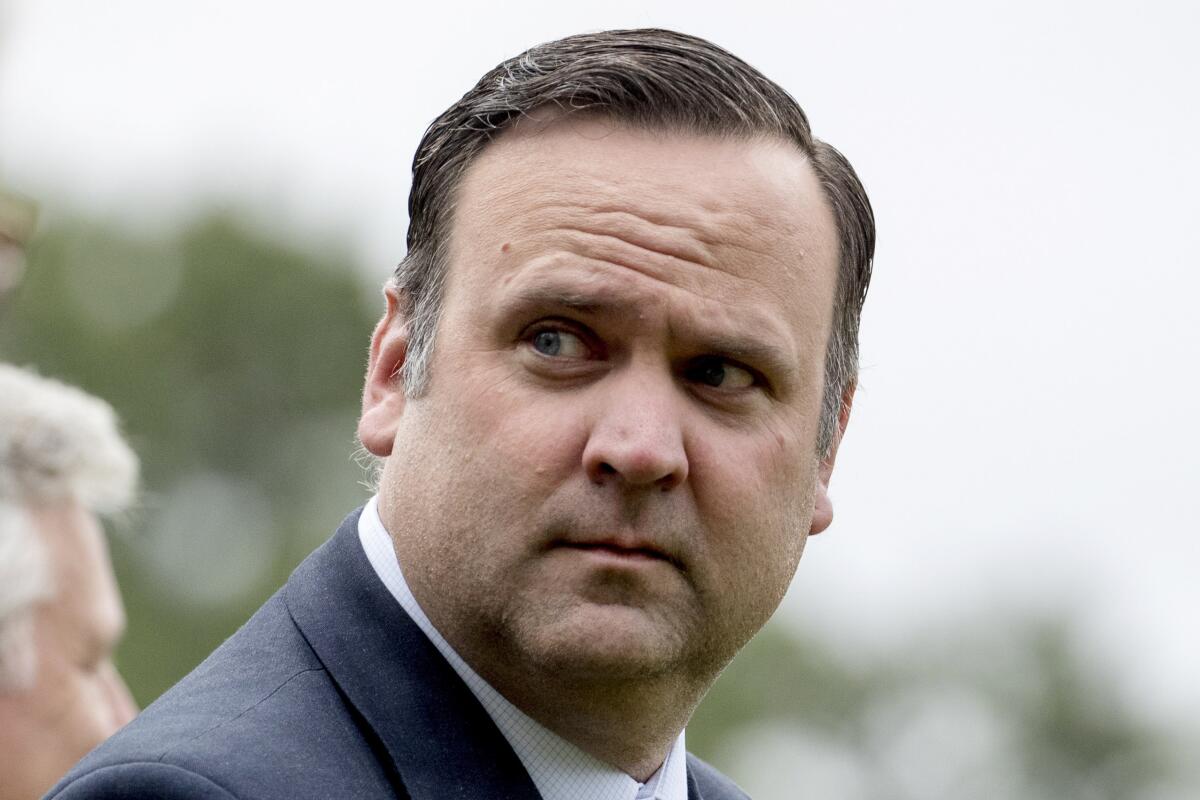
Former Deputy Chief of Staff and White House Social Media Director Dan Scavino Jr. has been accused of helping Trump spread false information about election fraud on social media and recruiting a crowd to come to the rally in Washington on Jan. 6. The House voted to hold him in contempt for refusing to comply with its subpoena.
Former Assistant Atty. Gen. Jeffrey Clark is alleged to have repeatedly pushed his colleagues in the Justice Department to investigate new theories about fraud and asked the department to instruct some states to “decertify” the results. Trump considered installing Clark as attorney general over acting Atty. Gen. Jeff Rosen, who said there was no evidence of fraud that could sway the election. Trump backed down when Justice leaders and White House lawyers threatened in a Jan. 3 meeting to resign en masse if he did.
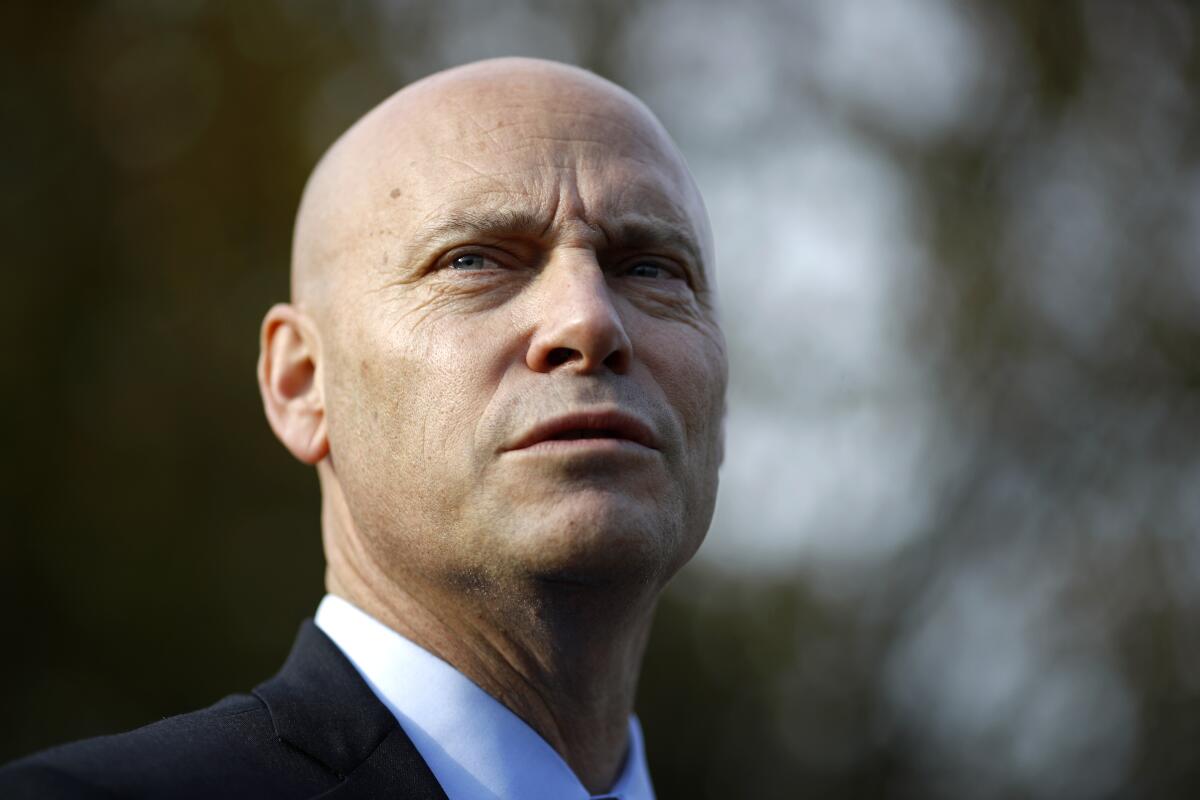
Pence’s Chief of Staff Marc Short and general counsel Greg Jacob each told the committee about Trump and Eastman’s pressure campaign on the vice president to throw out the election results from a handful of states in the days before Jan. 6.
Former Meadows staffer Cassidy Hutchinson was in the room with Meadows for many of the meetings that took place before and on Jan. 6 that are at the root of the inquiry, including meetings with Republican lawmakers who planned to object to accepting electors from certain states. She has testified behind closed doors at least three times.
Fraudulent electors
Fourteen people falsely claimed to be 2020 electors for Trump in states that Biden had won: Arizona, Georgia, Michigan, New Mexico, Nevada, Pennsylvania and Wisconsin. Even though a majority of voters picked President Biden, these fraudulent electors submitted their votes for Trump to the National Archives. The plan involved some Trump campaign aides and state Republican Party officials and was meant to give members of Congress room to question the legitimacy of the results they were gathered to certify Jan. 6.
Members of Congress
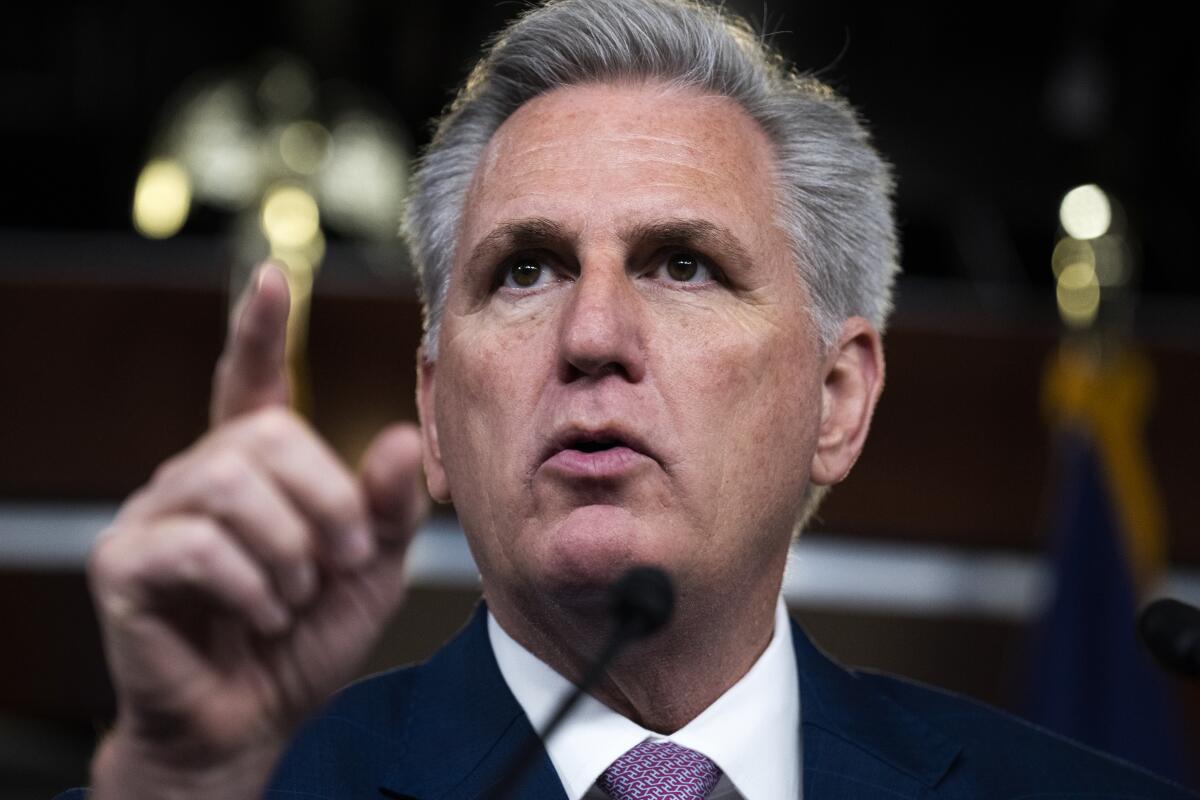
House Minority Leader Kevin McCarthy (R-Bakersfield) spoke with Trump during the attack on the Capitol and in the days after, including about whether Trump was in any way responsible for instigating the assault and what should be done in response.
The committee has alleged Rep. Scott Perry (R-Pa.), leader of the conservative House Freedom Caucus, “was directly involved with efforts to corrupt the Department of Justice and install Jeffrey Clark as acting Attorney General.”
A series of congressional hearings about the Jan. 6, 2021, attack on the U.S. Capitol have been televised. Here’s what you need to know.
Rep. Jim Jordan (R-Ohio) spoke to Trump on Jan. 6 and participated in meetings and discussions in late 2020 and early 2021 about strategies for overturning the election, according to the committee. Pelosi refused to allow him to become a member of the committee, prompting McCarthy to withdraw all of his recommendations for GOP members.
Rep. Andy Biggs (R-Ariz.) helped plan various aspects of Jan. 6 including bringing protesters to Washington for the counting of electoral votes and attempting to convince state officials that the 2020 election was stolen, according to the committee.
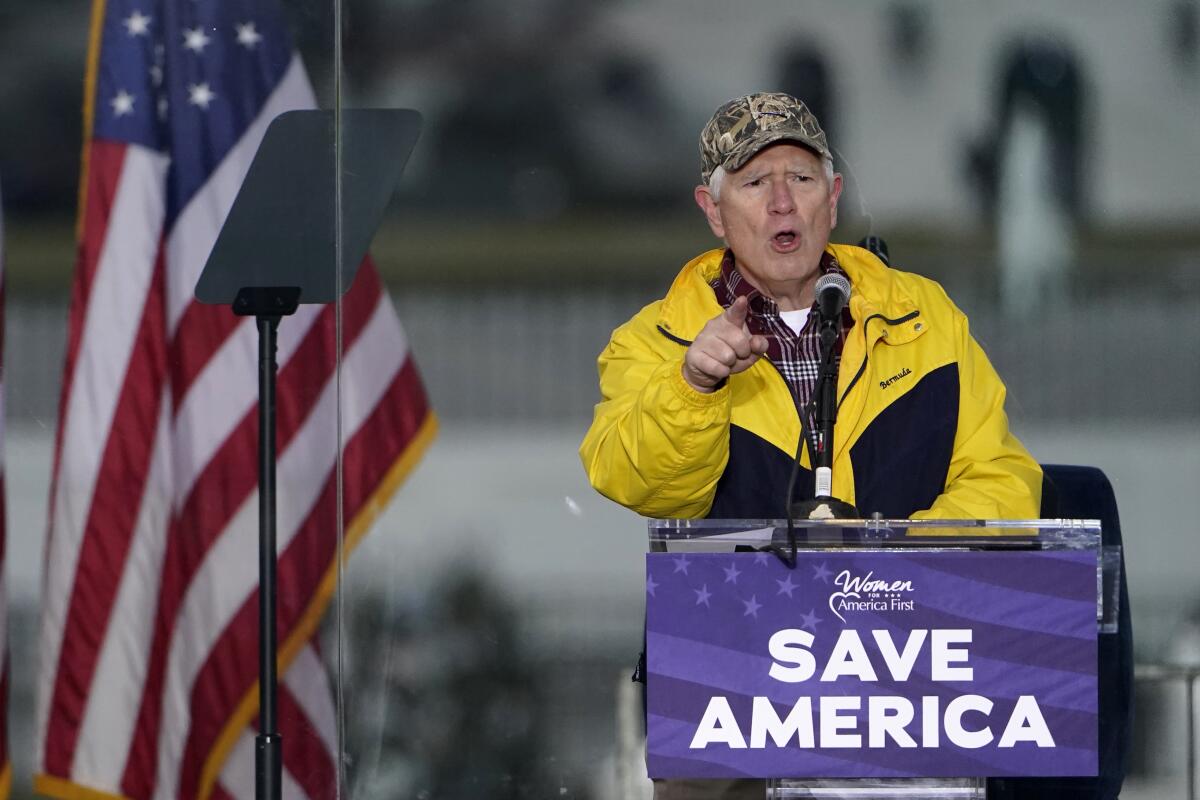
Rep. Mo Brooks (R-Ala.) spoke at Trump’s rally before the attack on the Capitol, encouraging those present to “start taking down names and kicking ass.” He has also publicly disclosed conversations that took place in the fall of 2021 in which Trump urged him to work to rescind the 2020 election.
All five refused to comply with subpoenas to appear before the committee.
Extremist groups and rally planners
The panel is scrutinizing some white nationalist leaders and militia groups, including the Proud Boys and its leader Enrique Tarrio, and the Oath Keepers and its leader Stewart Rhodes, about how and if the groups helped coordinate the Capitol attack and what rally organizers may have known about their intentions.
The committee is also expected to discuss the organizers involved in planning and financing the rallies Jan. 5 and Jan. 6, including the one Trump at which spoke before the attack.
More to Read
Get the L.A. Times Politics newsletter
Deeply reported insights into legislation, politics and policy from Sacramento, Washington and beyond. In your inbox twice per week.
You may occasionally receive promotional content from the Los Angeles Times.

